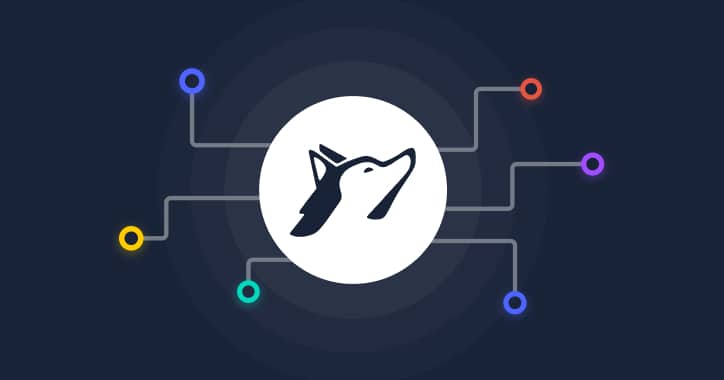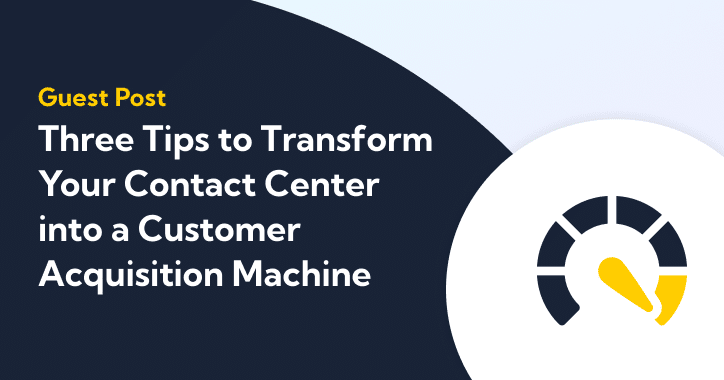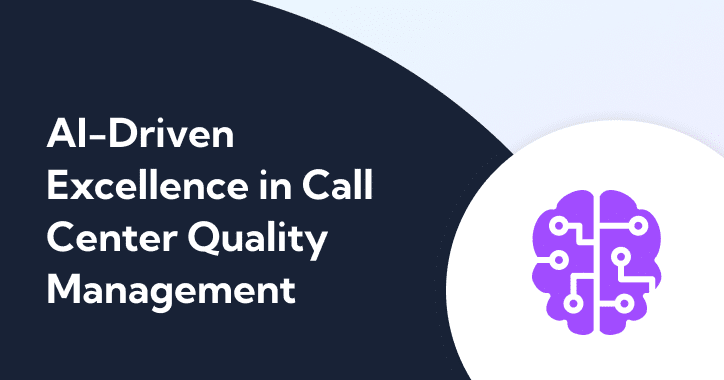Few inventions have had a more profound impact on modern life than the telephone. From almost the moment that the telephone became widely commercially available in the 1880s, it staked out its place as an indispensable tool of business communications.
The telephone would go on to become a symbol of modern life. At its peak usage, nearly every U.S. household had a landline telephone and used it as their primary means of communication. From at least the 1920s, the telephone became the single most important channel for sales and customer service among U.S. businesses.
Recently, advanced call quality monitoring solutions have taken phone calls to the next level by augmenting humans on the phones. For the first time, artificial intelligence can ride along on each phone call, helping improve call results quickly and predictably.
The Importance of Getting Call-Based Interactions Right is Higher than Ever
These days, phone calls are reserved for higher-value transactions, where relationships are especially important. Additionally, the communications tree has been greatly enlarged over the last two decades. Customer problems are now frequently solved by company communications assets long before the point of contact with a human agent. This has been accomplished both through the use of increasingly sophisticated A.I.-based automation as well as alternative customer service channels, such as frequently-asked-questions sections on websites and even A.I.-chatbots.
These trends are theoretically good from an efficiency standpoint: Agents are freed up to use their limited resources and unique talents for only the highest-priority and most-challenging calls. But fielding only relationship-critical calls also raises the stakes for collectors, customer service representatives, telephone salespeople to unprecedented levels. Today, it is imperative that every call is handled correctly.
Call Quality Monitoring and the Training Model of Quality Assurance
Today’s telephone customer service agents are often handling issues where mistakes are measured in the thousands or tens of thousands of dollars. By the time a customer reaches an agent, a relationship that may have been years or even decades in the making is often at stake. And these relationships often involve customers that spend hundreds of dollars per month.
The same trends can be seen in the world of sales where automation has taken a larger role in augmenting human interaction in low-ticket and routine sales channels. Today’s salespeople are often dealing with serious money and situations that can spell the difference between retaining a loyal repeat customer and losing them forever to competitors.
That’s why today’s businesses that rely on call centers for mission-critical communications view investing in top people and programs not as a cost but also as an additional marketing opportunity. This means that businesses are putting a major sales channel in the hands of entry-level agents. And they are often discovering the shortcomings inherent in the old ways of ramping up agents to the required skill level as well as the challenges and limitations of ongoing call center quality assurance in real time.
Traditionally, the ramp-up of new call-center agents was based on the only model that was known to work: the training model. This involves mostly vetting agents through an interview process and then putting them through an extensive training period where the company aims to instill the practices that it knows work in its industry-specific context while building the agents’ skill sets to the point where they will hopefully be operating at a high level.
In theory, this model sounds great. But in practice, even training programs that last a month or longer are unlikely to equip most or even some of a particular training cohort with the ability to perform at a truly superlative level. What companies really want is to have every new hire performing at the level of their top call-center agent. But with the training model, this is like expecting that every high-school basketball recruit can be taught to play at an all-state level within a matter of weeks; it simply isn’t realistic. As a result, companies are increasingly seeking solutions that help train reps while also allowing them to handle real phone calls.
Balto Real-Time Call Quality Monitoring Can Make Every Call-Center Agent an All-Star
Balto, a maker of advanced call center analytics software that uses cutting-edge artificial intelligence to vastly improve telephone business-to-customer interactions, has developed a solution that can do the seemingly impossible: make every agent in your call center an all-star.
With its advanced user interface and call quality monitoring tools, Balto is capable of real-time call quality monitoring that is highly effective, without being intrusive. Balto offers helpful suggestions and will initiate warnings against using ineffective or non-compliant language as the conversation is unfolding, taking the initiative to keep a call on track before a mistake has been made rather than reviewing a potentially customer-losing mistake after the fact.
Studies have shown that new trainees will forget more than half of what they have learned within just seven days. This is true even for the most intensive and well-designed training programs. And this means that new hires who have completed a month-long training program, often at great expense to the company that has trained them, will frequently remember scarcely anything that they have learned from the first weeks of training.
In practice, this means that the actual time necessary to ramp a new hire up to the performance level of a seasoned call-center agent is often on the order of three to six months. During this time, the subpar performance of these agents can produce huge liabilities for companies where every call is a make-or-break event for customer retention, product sales or invoice settlement. Companies need a way to bring their call-center agents up to speed rapidly and accurately, developing the deep skills and expert in-call responsiveness that only battlefield experience has thus far been able to confer.
And this is where Balto’s call quality monitoring software shines. It uses sophisticated statistical and artificial-intelligence-based methods to determine the factors that define the performance of a company’s top agents. It then scales those factors across the entire call-center team, helping each agent to match the in-call skills of the firm’s top performers.
Balto can help any company to maximize customer satisfaction. However, it can be a true game changer when it comes to companies that regularly engage with customers over the telephone where critical issues are addressed.In particular, Balto’s advanced call center monitoring software and real-time intervention capabilities can be a boon to companies operating in the areas of sales, customer service, collections or anywhere else that mission-critical telephone communications take place.
Balto’s Software Helps Every Sales Agent to Develop the Proven Habits of Top Closers
When it comes to telephone sales, there is no better way to cost-effectively send closing rates through the stratosphere than by adopting Balto’s state-of-the-art call quality monitoring software.
Through advanced call monitoring, Balto helps companies to isolate the decisive factors that their best closers are using to generate their office-leading results. Call scoring software can then be set up to help every salesperson in the office to replicate the performance of top closers, adding hugely to the company’s bottom line. In addition to an industry-leading training tool, Balto is a real-time suggestions wizard that helps sales representatives to overcome objections, use effective language and keep sales calls on the right track, all as the call is actively unfolding. With onboarding times measured in days, rather than the months that similar systems often require, Balto can be up, running and helping firms rake in money in no time.
Collections Agencies Stay Compliant with Balto’s Call Quality Monitoring
The area that may immediately see the most well-defined benefits from adopting Balto call center quality monitoring software is the collections industry. Because collections offices must constantly be wary of complying with a seemingly infinite hodgepodge of state-by-state laws, Balto’s call quality monitoring lift an enormous burden off the shoulders of collections agents and their managers.
Quality-assurance expenses in the collections industry can be significant, often comprising large portions of a firm’s total cost structure. Balto’s call quality analytics has been proven to reduce real-time call quality monitoring costs by as much as 98 percent while delivering far more accurate and useful results. This is a win-win situation, with the greatest benefits actually flowing from the prevention of liability creation by keeping every call within ethical and legal bounds.
Customer Service Benefits Accrue Immediately with Balto’s Call Quality Monitoring
Today’s customer service call-center agents deal with more challenging and critical calls than ever before. With so much on the line, Balto call quality monitoring software can help keep customers satisfied, resolving issues in a way that de-escalated situations before they turn into a threat to customer retention.
Balto actively monitors every call, anticipating when choke points in the conversation may be approaching and providing suggestions for the use of effective language that is proven to lead to satisfactory outcomes. Studies of customer service interactions have revealed that most customer issues can be resolved before morphing into relationship-ending crises. Balto can help guide critical interactions to those desirable conclusions, helping to retain customers and turning potentially negative outcomes into wins for everyone.
Interested in learning more? Request your free Balto demo, here!






